Publications
Articles, publications, books, tools and multimedia features from the U.S. Institute of Peace provide the latest news, analysis, research findings, practitioner guides and reports, all related to the conflict zones and issues that are at the center of the Institute’s work to prevent and reduce violent conflict.
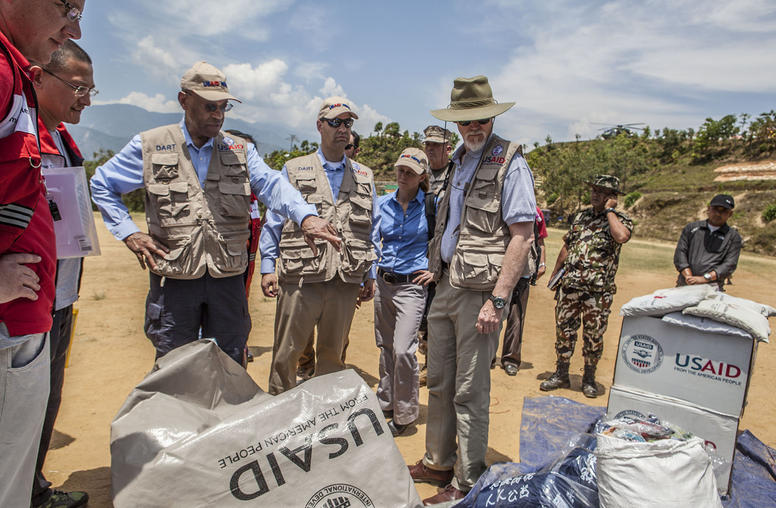
From How to Who: Reforming the Civilian Workforce for Prevention
It seems obvious that a U.S. foreign service or development officer would need a unique set of skills for dealing with the varied challenges they face in fragile countries. Delivering humanitarian assistance effectively in the wake of a natural disaster requires a mentality and approach that is different from advising a government in a fragile state facing mass unrest. But, the civilian workforce of the U.S government isn’t always equipped to perform the roles that policymakers require of them. Similarly, preventing conflict or extremism in countries where the United States has diplomatic missions requires a different way of operating—it may even require a different workforce altogether.
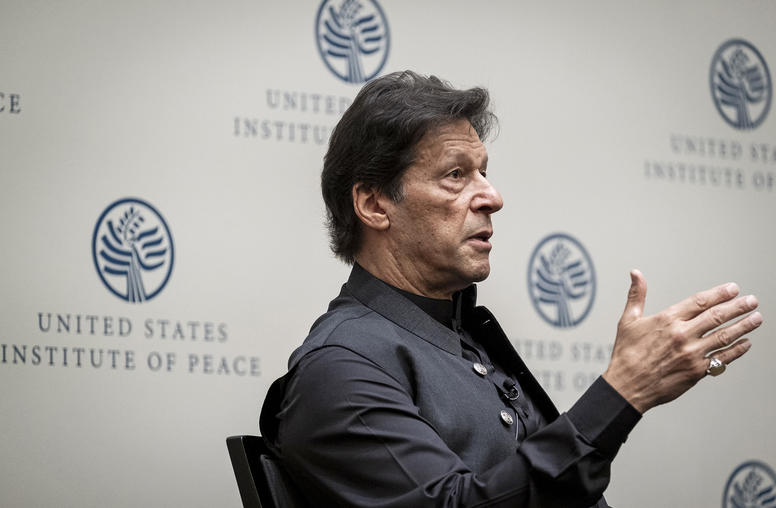
Pakistan’s Leader Vows to Press Afghan Taliban to Join Talks
Pakistan’s Prime Minister Imran Khan vowed to return home from his first official trip to Washington and meet leaders of the Afghan Taliban to persuade them to drop their rejection of peace talks that include the Afghan government. Khan spoke to an audience of U.S. policymakers, scholars and diplomats at the U.S. Institute of Peace following talks with President Trump in his first visit to the United States as prime minister. Khan discussed his meeting with Trump and hopes for an improved relationship with the United States, as well as Pakistan’s struggles with corruption and poverty, and relations with its neighbors.

Megan Chabalowski on USIP’s Peace Teachers Program
Young people are hungry for examples of people working for peace in some of the world’s most violent conflicts, and they are curious about ways they too can make a positive difference. Megan Chabalowski explains how USIP’s Peace Teachers Program provides educators with the in-depth training and resources needed to incorporate peacebuilding into their classrooms and communities.
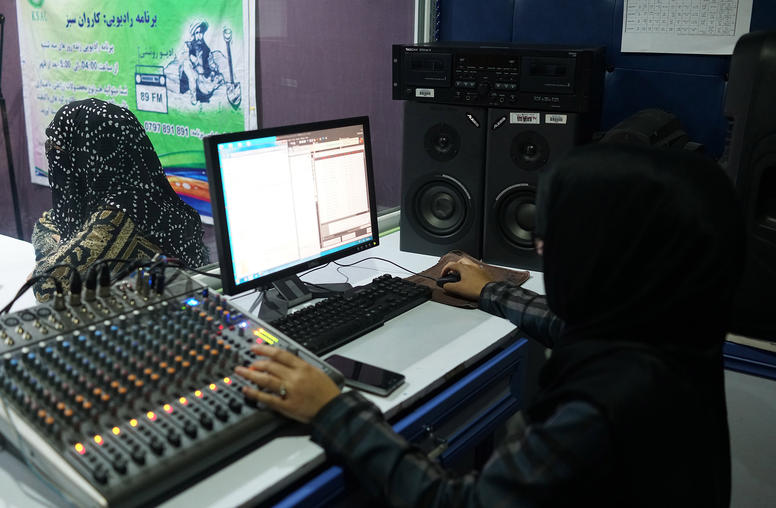
How Women Are Using Technology to Advance Gender Equality and Peace
From Afghanistan to Sudan, women in conflict areas are increasingly turning to technology to build peace and reduce gender inequality. Just as smart phones and mobile internet facilitate key functions of daily life, they also bring the world women’s voices once confined to the home or marketplace. It is a development with tremendous promise that the international community needs to support by widening access to technology, reducing social barriers to it and providing training that boosts proficiency.
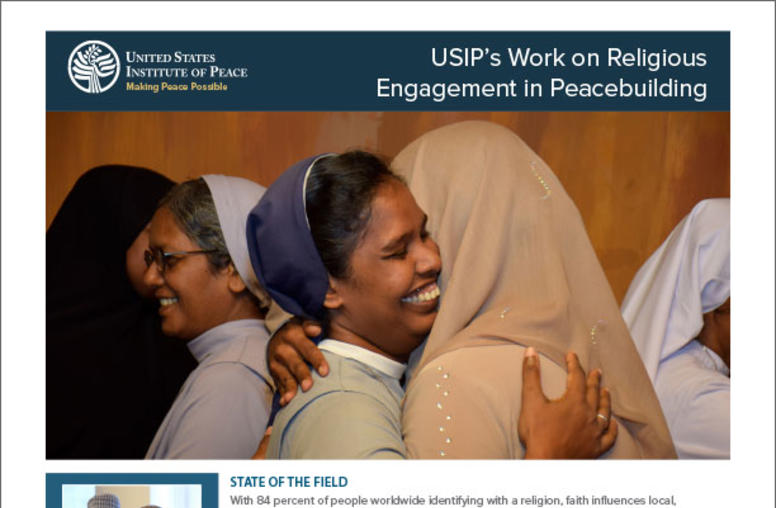
Religious Engagement in Peacebuilding
With 84 percent of people worldwide identifying with a faith tradition, religion influences local, national, and international decision-making. Across the globe, violent extremism often is couched in religious terms, and religious discrimination is on the rise. At the same time, people of faith and religious organizations frequently are on the frontlines of peace efforts, assisting communities affected by violence. Although religious considerations have been marginal to peace efforts historically, governments and peacebuilding organizations increasingly recognize the importance of religion.

Tunisia Timeline: Since the Jasmine Revolution
Protests in Tunisia ignited the Arab Spring in late 2010. The transition has witnessed the evolution of the most hopeful young democracy in the Middle East. But it is still fraught with economic, political and security challenges.

Scott Smith on the Afghan Peace Process
Following unprecedented talks between Taliban and Afghan leaders this week, which have provided renewed hope for peace, the Taliban claimed credit for an attack in Ghanzi province. Scott Smith says Afghanistan is now exhibiting “one of the usual paradoxes of this stage of a peace process … where both parties, as they begin to talk more, they begin to fight more.”
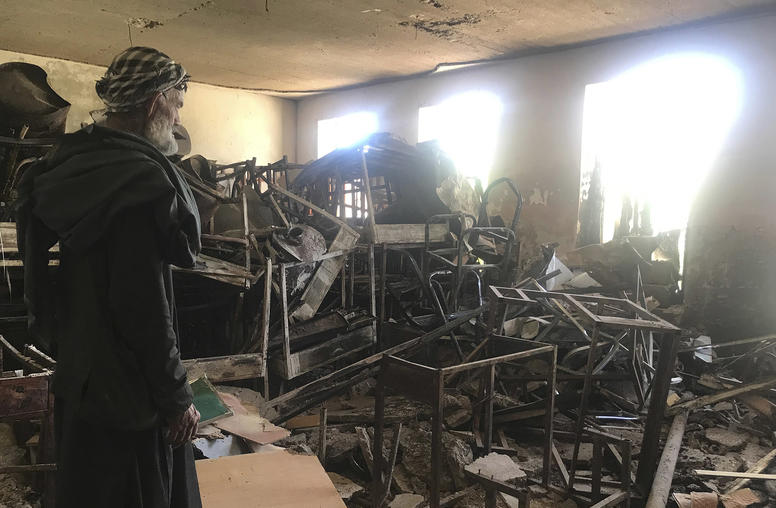
A Foot Forward for Peace in Afghanistan?
Taliban and Afghan representatives agreed early this week to a basic, albeit non-binding, roadmap for intra-Afghan negotiations aimed at ending the 18-year war. Since the U.S. resumed direct talks with the Taliban last September, the two sides have focused on the withdrawal of foreign forces and the steps the Taliban will take against terrorists on Afghan soil. Meanwhile, intra-Afghan talks on a political roadmap have yet to get off the ground. After months of seeming stasis, this week’s Doha meeting has injected renewed hope. USIP’s Scott Smith looks at what happened this week, what it means for Afghan women, and the next steps in the peace process.

Kathleen Kuehnast on Women in Conflict Zones
At a recent USIP event, Nobel laureate Nadia Murad discussed her efforts to end sexual violence and human trafficking—two criminal practices that Kathleen Kuehnast says “have been institutionalized and militarized.” To disincentivize these human rights abuses, Kuehnast says we must reinforce that these heinous but often lucrative practices are “not a livelihood—this is criminality.”
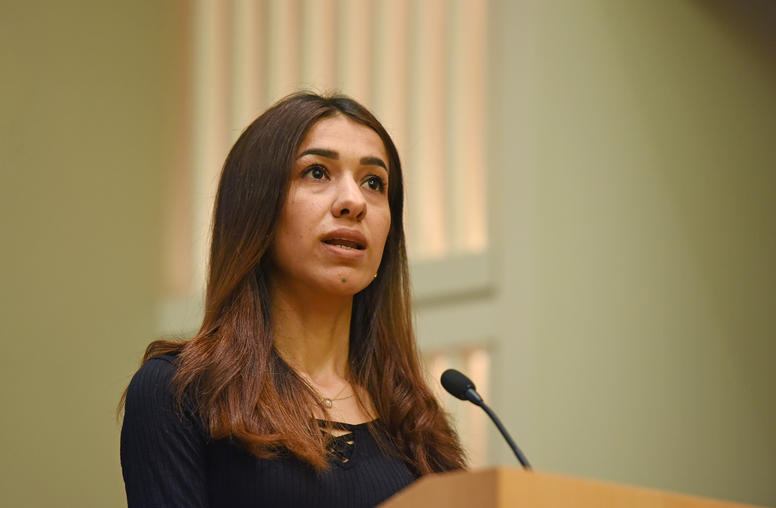
Nobel Laureate Nadia Murad Appeals for Aid to Save Yazidi Society
Nadia Murad, the sad-eyed, soft-spoken Nobel laureate and voice of the Yazidi genocide, warned that her people along with Christians and other minorities are slowly disappearing from Iraq. Faced with challenges that include uncertain security, lack of health care, stalled reconstruction and inability to leave refugee camps, Yazidis and other minority groups urgently need international help if they are to survive as components of Iraq’s national character, she said.